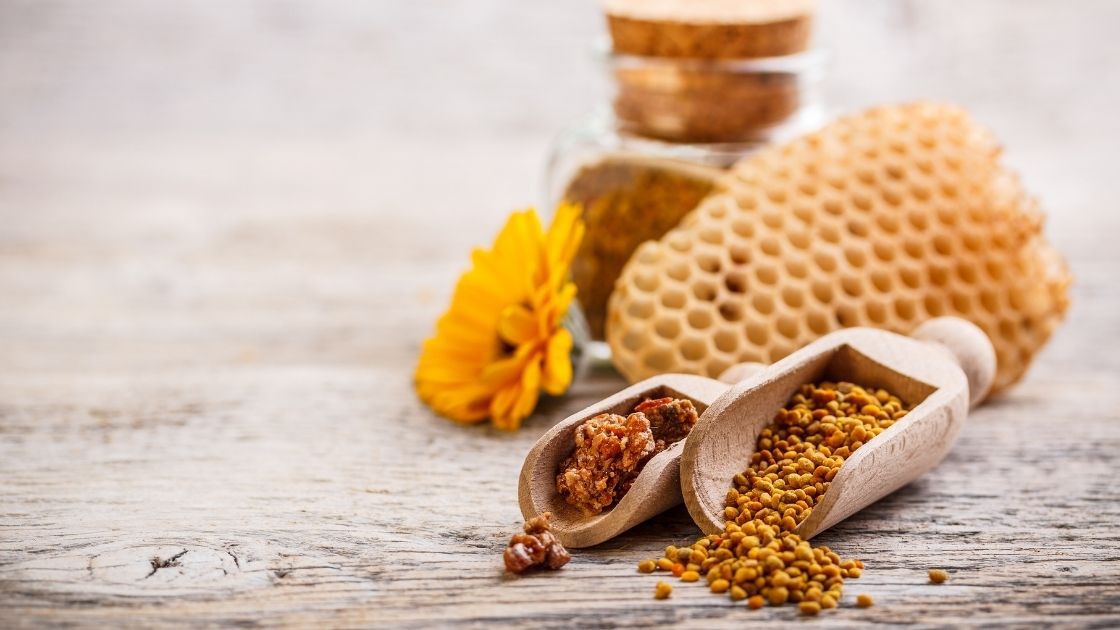
FAQs on PROPOLIS
What is Propolis?
Propolis is a natural substance produced by honeybees from plants which is recognized for its numerous health benefits.
Propolis is made by honeybees from a complex mixture of resins, waxes and oils gathered from various plants and trees. Propolis is also known as “bee glue” which the honeybees use to seal the entrances and cracks of their beehives as well as to sanitize and protect them against infection.
This protective function of propolis is also reflected in the origin of the term which was derived from the Greek words “pro” which is translated to “at the entrance to” and “polis” for “community or city.”
What are the benefits of Propolis?
As a compound, propolis contains numerous bioactive plant substances called flavonoids that make propolis multifunctional in promoting oral health and in protecting the oral cavity against disease causing microorganisms.
Owing to its known multiple actions, propolis has been studied and prepared either as an ointment, spray or gargle to soothe inflamed throats, reduce mouth sores and promote healing of oral cavity irritations such as stomatitis, aphthous ulcers and mucositis. A gargle preparation of propolis was even found to be beneficial in the healing of postsurgical wounds as seen in tonsillectomies or the surgical removal of the tonsils.
1. Healing and Soothing Properties
Propolis is also known for its antioxidant properties. The bioactive flavonoids present in propolis have been shown to act as potent antioxidants capable of counteracting or neutralizing the damaging free radicals. In this regard, antioxidants could be seen to help protect the different body cells from further injury. The antioxidative properties of flavonoids in propolis also contribute to its anti-inflammatory actions.
Aside from aiding in the healing of oral sores and wounds, applying preparations of propolis on irritated tissues has been shown to help reduce pain. This has been attributed to the inhibitory activities of propolis against the release of precursor inflammatory compounds from injured tissues.
2. Antimicrobial Actions
Antimicrobial activities against certain bacteria, viruses, and fungi have also been documented in studies with the compound propolis. In a laboratory setting, multiplication of both cultured gram positive and gram-negative bacteria was inhibited while the entry of viruses into the cells was reduced with the use of various preparations of propolis and its extracts.
What are the adverse effects of propolis?
Although rare, adverse effects have been reported with the use of the compound propolis in general like hypersensitivity reactions among individuals allergic to bee products.
What are the precautions that should be observed when taking propolis?
• Persons allergic to bee products such as honey, bee pollen and royal jelly should not use propolis.
• Care should be taken when used by individuals with a history of hypersensitivity conditions such as allergies and asthma.
•Pregnancy and breastfeeding: There are no information available about use of propolis during pregnancy or while breastfeeding.
References:
Wagh VD. Propolis: a wonder bees product and its pharmacological potentials. Adv Pharmacol Sci.
Przybyłek I, Karpiński TM. Antibacterial Properties of Propolis. Molecules.
Debiaggi M, Taleo F, Pagani L, Luini M, Romero E. Effects of propolis flavonoids on virus infectivity and replication. Microbiologica.
Moon JH, Lee MY, Chung YJ, Rhee CK, Lee SJ. Effect of Topical Propolis on Wound Healing Process After Tonsillectomy: Randomized Controlled Study. Clin Exp Otorhinolaryngol.
Braakhuis A. Evidence on the Health Benefits of Supplemental Propolis. Nutrients.